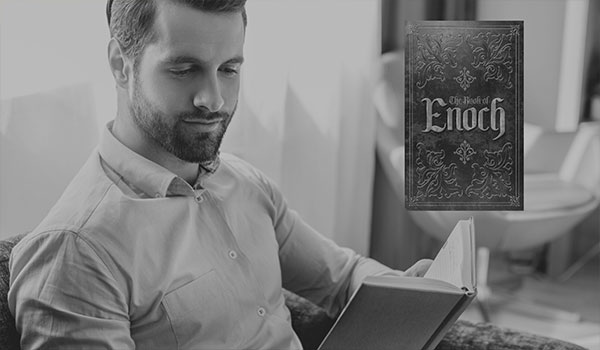
The Book of Enoch is available for reading. Various translations and versions of the text can be found in bookstores, libraries, or online. It is important to note that different translations and versions in content and wording may vary slightly. If you are interested in reading the Book of Enoch, you can explore other translations and editions to find one that suits your preferences. It is advisable to choose a reputable translation by recognized scholars. They provide helpful annotations and commentary to aid in understanding the text.
As with any religious or ancient text, approaching the Book of Enoch with an open mind, critical thinking, and a willingness to explore different perspectives can enhance the reading experience. Engaging in further research or seeking guidance from religious leaders or scholars knowledgeable about the text and its historical context may also be beneficial.
Remember that the Book of Enoch is not part of the canonical scriptures for most religious traditions, so its reading is considered supplementary and not on the same level of authority as the recognized sacred texts. In general, reading religious or non-religious books is not considered a sin.
Is it A Sin To Read The Book of Enoch?
Whether or not it is considered a sin to read the Book of Enoch varies among religious traditions and interpretations. Here are some perspectives:
Judaism: In Judaism, the Book of Enoch is not included in the canon of sacred texts. It is not considered part of the Hebrew Bible or the traditional Jewish scriptures. Therefore, its reading is not typically considered a sin but a personal choice or interest.
Christianity: Within Christianity, opinions on the Book of Enoch vary. In some Christian traditions, the Book of Enoch is considered non-canonical and not part of the official biblical canon. In these traditions, reading the Book of Enoch may be seen as simply exploring ancient Jewish literature and historical context. However, some Christian denominations discourage reading non-canonical texts and consider them less authoritative for matters of faith and practice.
Personal beliefs and interpretations of religious texts can differ among individuals and religious communities. Suppose you have concerns about reading the Book of Enoch or any other religious text. In that case, consulting with religious leaders or scholars from your specific faith tradition may be helpful for guidance. Ultimately, the decision to read the Book of Enoch or any other non-canonical religious text is personal.
Why can people read the Book of Enoch?
There are several reasons why people might choose to read the Book of Enoch:
Historical and Cultural Interest: The Book of Enoch is an ancient text that provides insights into certain Jewish and early Christian communities’ beliefs, traditions, and worldviews. It can be valuable for those interested in understanding ancient religious thought’s historical and cultural context.
Comparative Religious Studies: The Book of Enoch is part of a larger body of ancient Jewish and Christian literature known as “pseudepigrapha.” Reading the Book of Enoch can contribute to a broader understanding of the diverse religious and theological ideas during that time, comparing and contrasting them with canonical texts.
Literary and Narrative Value: The Book of Enoch contains apocalyptic and visionary accounts that some find fascinating from a literary or narrative perspective. It presents imagery, elaborate cosmology, and unique mythological elements that can be appreciated for their artistic qualities.
Spiritual Exploration: Some may find spiritual inspiration or personal insights while reading the Book of Enoch. Its focus on angelic beings, divine visions, and the exploration of cosmic mysteries can resonate with those drawn to mystical or esoteric aspects of spirituality.
Personal Faith Exploration: The Book of Enoch may offer alternative perspectives on theological and ethical issues for those who approach religious texts with an open mind and curiosity. It can stimulate contemplation and encourage critical thinking about faith, morality, and the nature of the divine.
Seeking guidance from religious leaders or scholars can provide valuable insights and help navigate the complexities of reading non-canonical texts.
Where can you read the Book of Enoch?
The Book of Enoch is available for reading in various formats and translations. Here are some ways you can access the text:
Printed Books: You can find physical copies of the Book of Enoch in bookstores or libraries. Look for editions that include translations and commentary by reputable scholars.
Online Sources: The Book of Enoch is widely available online in various translations. You can search for websites offering free or paid text access. Project Gutenberg, Sacred Texts, and Internet Archive are some platforms that provide digital versions of the book.
E-Book Platforms: Digital versions of the Book of Enoch are available for e-readers, tablets, and smartphones. Platforms like Amazon Kindle, Apple Books, and Google Play Books offer e-books with different text translations.
Academic Sources: If you prefer scholarly editions of the Book of Enoch, you can explore academic libraries or online databases that provide access to scholarly journals, research papers, or critical text editions.
When selecting a translation or edition of the Book of Enoch, it is advisable to choose a reputable version by recognized scholars to ensure accuracy and clarity. Additionally, consider reading introductions or commentaries that provide context and insights to enhance your understanding of the text.
Read more:
10 Facts About The Book Of Enoch
Why Stay Away From The Book of Enoch?

